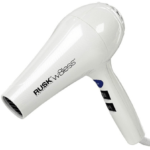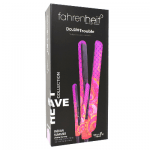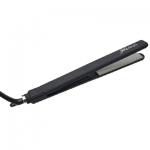Are you desperate to eliminate acne from your life? Do you believe cheese is the culprit?
If you’re considering parting ways with your cheeseboard in hopes to eliminate acne, this post is for you. There are many reasons your skin is breaking out such as stress, age, or a change in skincare products. Knowing what’s triggering your acne is a great first step to treating it.
In this guide, you’ll learn more about what could be causing your acne and if eliminating cheese from your diet is the answer.

How Cheese Affects the Skin
There have been few studies that prove cheese causes acne. However, a 2018 study showed that those who eat cheese and dairy frequently have a higher chance of triggering acne than those who don’t. Still, many skin professionals and experts share that the chances of cheese and dairy playing a role in acne is genetic. And, that there are several ways to improve breakouts that don’t involve cutting cheese from your diet.
So, can cheese cause acne? In some cases, yes. However, it seems to be a matter of genetics. There are individuals who barely consume dairy and struggle with acne and others who are cheeseboard fanatics and have super clear skin. Since there isn’t any solid evidence that proves cheese affects the skin negatively, we’re going to suggest you use proven methods to treat your acne.
What Causes Acne?
Acne and blemishes occur when the pores of your skin become blocked by too much oil production, dead skin cell accumulation, or bacteria buildup in pores. When pores become clogged, these oils or bacteria can’t escape leading to pimples. Some people have naturally oily skin while others breakouts are due to stress, age, or a change in skincare products.
Treating Acne
There are three ways you can treat acne: at-home care, medication, or visiting a doctor.
At-home care consists of keeping your skin clean. You want to cleanse your face daily with a gentle soap. Also, shampoo your hair regularly and keep it out of your face. Avoid the use of makeup but if you must wear some, use water-based cosmetics. Finally, don’t touch your face or pick at your pimples – this will only cause the bacteria to spread.
There is also the option to take medication. A few over the counter medications you can try to kill bacteria or reduce oily skin include:
- Benzoyl peroxide (used for drying out pimples and prevention new ones)
- Resorcinol (used to remove dead skin cells)
- Salicylic acid (prevents pores from getting clogged)
The last treatment option is seeking the expertise of a doctor. Dermatologists will be able to prescribe medications like antibiotics or topical creams. They may even recommend certain procedures to remove the acne and prevent scarring. Some of these include:
- Photodynamic therapies
- Dermabrasion
- Chemical peels
- Cortisone injections
Again, there is little evidence that proves cheese and acne go hand in hand. The only way to know if it’s a solution for you is to give it a try and eliminate or at least reduce dairy intake from your diet.
Preventing Breakouts
To prevent acne from coming back, speak with your doctor. They will be able to give you at-home strategies to try. However, common steps include:
- Keeping skin clean
- Avoiding makeup that contains oil
- Showering immediately after exercise
- Avoid tight clothing
- Eating a healthy diet
- Reducing stress
And, while you’re at it ask them about the role cheese plays in acne. They’ll be able to help you decide if giving dairy up is the right solution for you.
Cheese and Acne: What Can You Do?
While there is very little evidence and studies to prove cheese causes acne, many people claim that giving up dairy has improved their skin. This is great news, but unfortunately, everyone’s skin is different. The only way to know if giving up cheese will improve your breakouts is by eliminating it from your diet for some time. If you notice an improvement in your skin, then reducing the consumption of cheese from your diet is a good solution for you.


